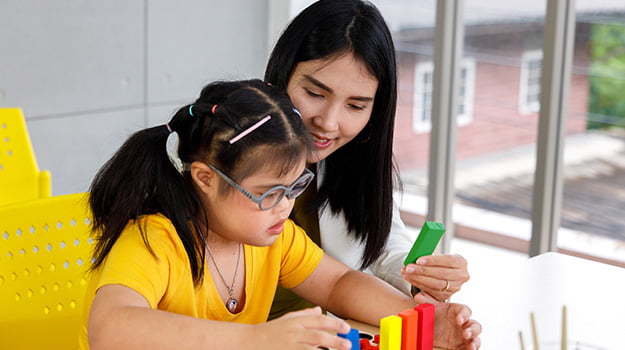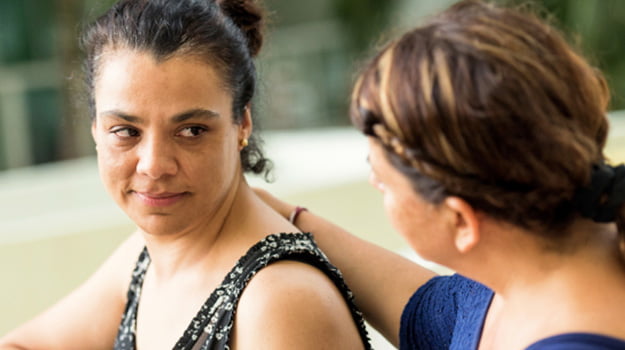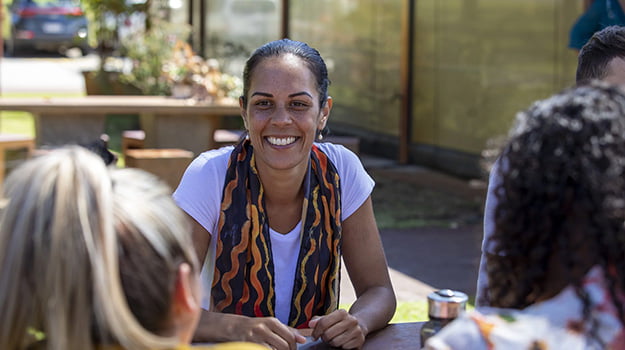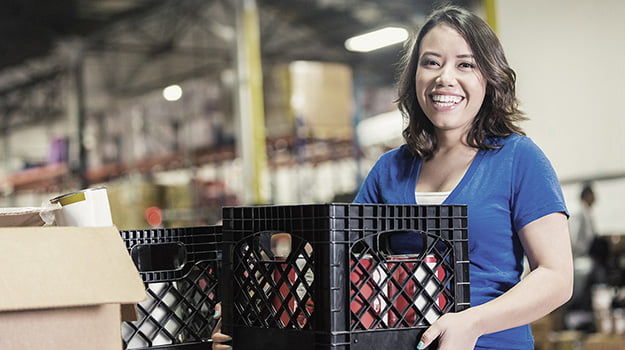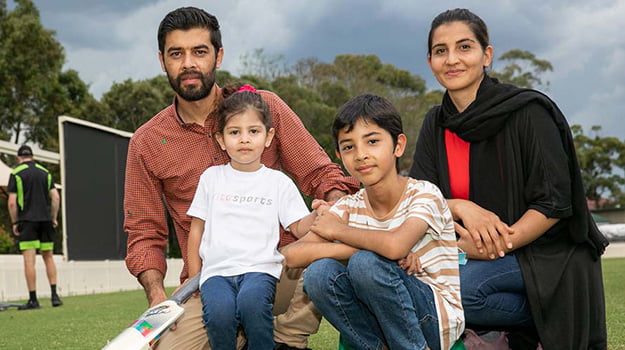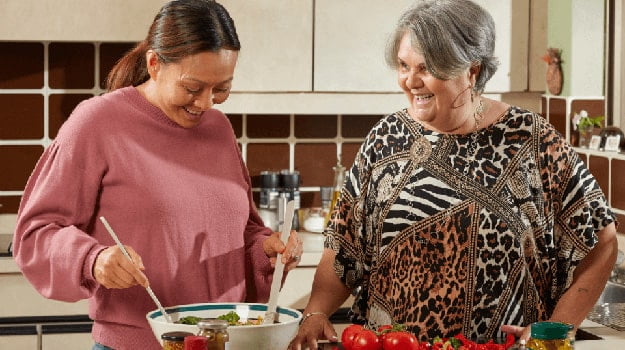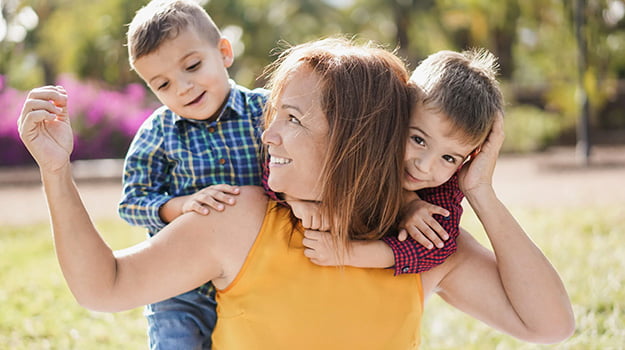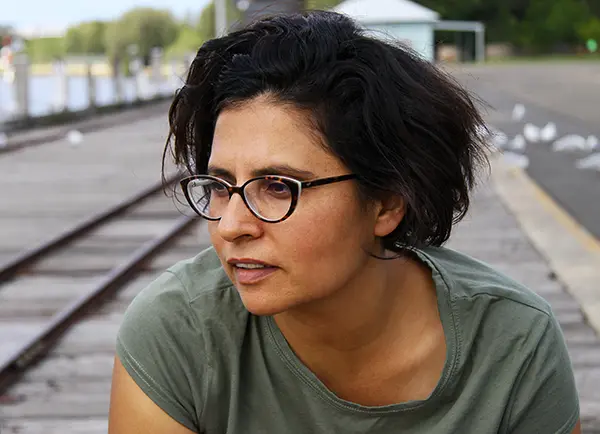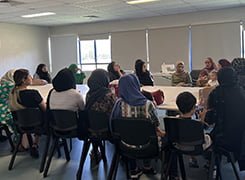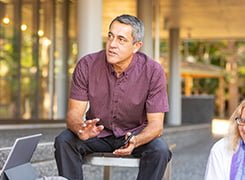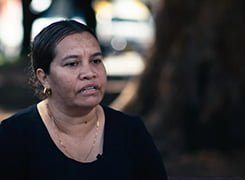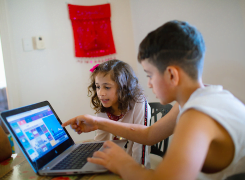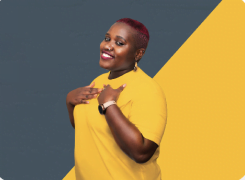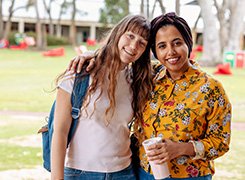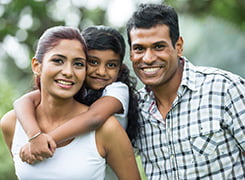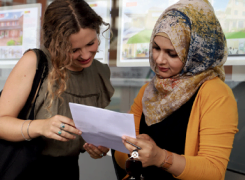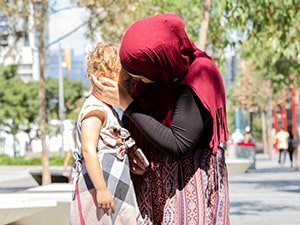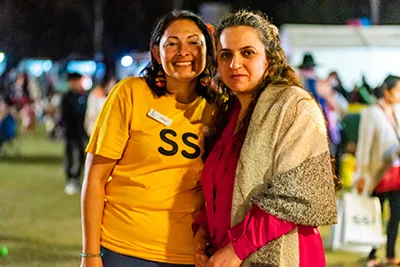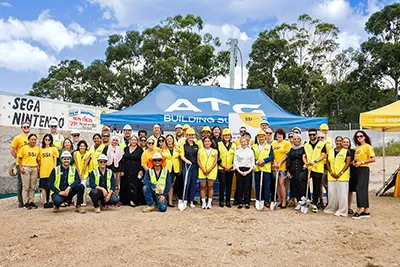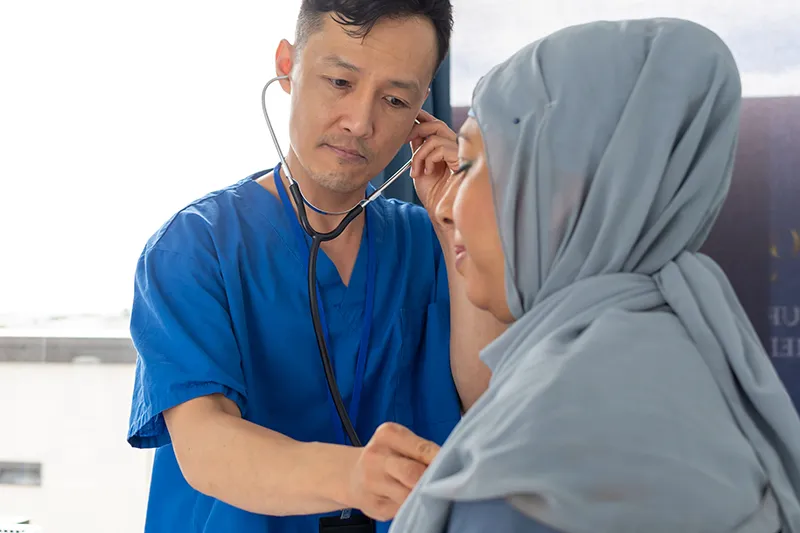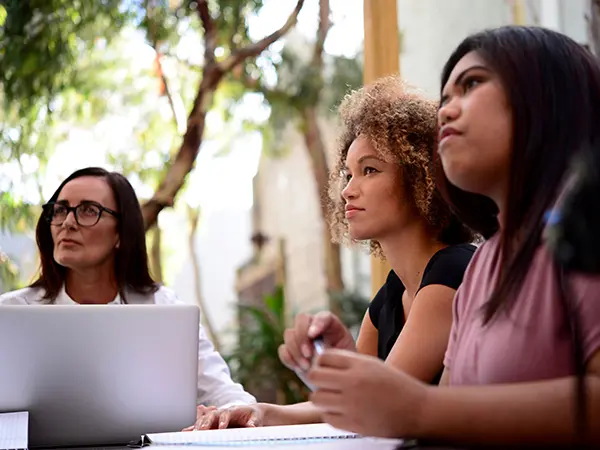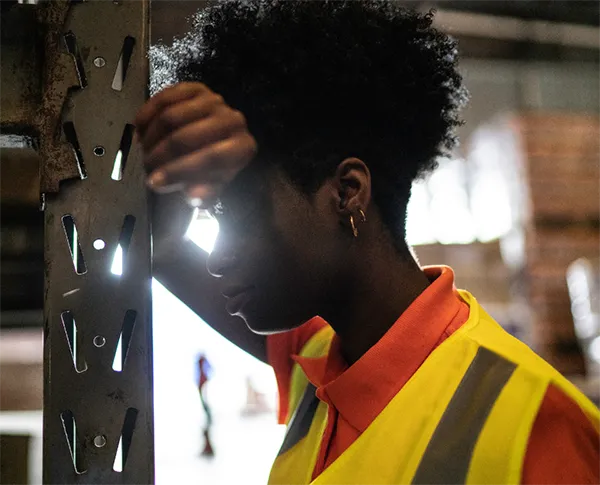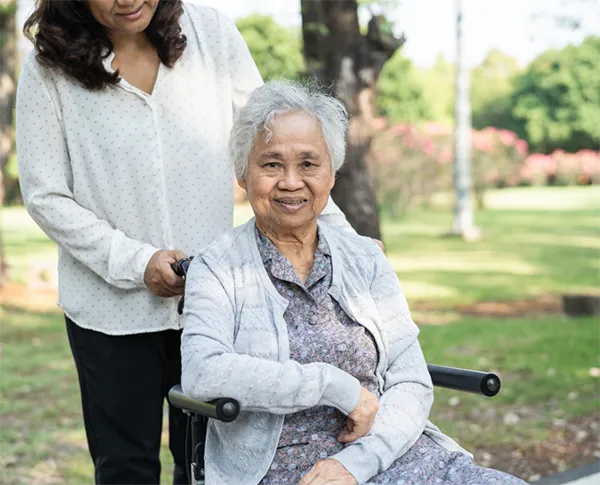Safe, Healthy and Empowered Relationships (SHER) is a Domestic and Family Violence behaviour intervention program for men who speak Dari and are living in Logan, Ipswich, Brisbane, Gold Coast or Moreton Bay.
The goal of this program is to increase safety for women and children by providing men an opportunity to take accountability for their actions recognising the harm their violence and behaviour choices are having on family.
This program helps you:
- Build effective ways to handle difficult situations without conflict
- Take responsibility for your actions and impact on others
- Build healthy family relationships as a father and husband
This program is for men who:
- come from an Afghan Dari speaking background living in Logan, Ipswich, Brisbane, Ipswich, Gold Coast, or Moreton Bay
- are concerned about how their behaviour affects their family
- are ready to make positive changes in their relationships
The SHER program can help to:
- Understand the difference between unhealthy and healthy relationships
- Build new ways to handle difficult situations
- Take accountability for your actions to build a safer home for your family
- Build better connections with those you care about
Individual support phase
- One-hour weekly sessions
- Private discussions with a skilled in-language facilitator
- Opportunity to discuss your specific situation
- Prepare for group work in a comfortable, private setting
- Explore new perspectives on family relationships
- Build strategies for creating a safer home environment
Group program phase (16 weeks)
- Weekly sessions
- Closed group format (same participants throughout the program)
- Learn from and support other men in similar situations
- Develop practical skills for positive change
Sessions take place every Thursday evening for 16 weeks, 6 – 8pm commencing April 2025
Gould Adams Community Centre, 558-662 Kingston Road, Kingston
If you or someone is in immediate danger, please call Triple Zero (000) for emergency services.
If you are subjected to or impacted by sexual violence, know someone who is, or are triggered by this content and would like to access support, please contact:
- 1800 RESPECT – Call 1800 737 732, text 0458 737 732, chat online or video call via their website for confidential domestic, family and sexual violence counselling information and support services
- DV Connect – Call 1800 811 811 for immediate support with crisis transport and accommodation in QLD
- Lifeline – Call 13 11 14
- 99 Steps – 07 3412 8282 or 99steps@ssi.org.au for women from CALD backgrounds living in Logan/Beenleigh experiencing DFV. Support includes information, advise, case work support and referral
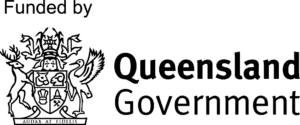
Making healthcare accessible for everyone
There is a critical need for improved service navigation to support better primary healthcare outcomes for CALD, refugee, and homeless communities.
Individuals from CALD and refugee backgrounds often face barriers to accessing healthcare such as a lack of culturally appropriate services, poor health literacy, and challenges related to communication, making it difficult to access and navigate their understanding of healthcare. Similarly, individuals experiencing homelessness often face stigma, mental health challenges, and financial barriers to access the healthcare services they need.
With the right care, coordination and support, people can better navigate healthcare systems by gaining the tools and skills to overcome the challenges they currently face.
About Healthcare Navigation Support
The South Western Sydney Primary Health Network (SWSPHN) has commissioned SSI to establish and deliver a Service Navigation Support Service within the South Western Sydney (SWS) region.
The service supports individuals from CALD and refugee populations, and those who are homeless or at risk of homelessness to overcome barriers and challenges to accessing primary healthcare by connecting them with appropriate healthcare services.
Who is this for?
People who are eligible for the service include those who:
- meet the specified demographic requirements
- are residents of the South Western Sydney (SWS) region
- are willing to engage in the services offered and participate in the intake process
- provide any necessary documentation or information required for eligibility.
People who are not Australian citizens are also eligible for the service, provided they currently reside within the SWSPHN region. This includes permanent residents and those on temporary visas.
Referrals may be ineligible, if:
- Individuals are receiving other care coordination or navigation services with supplementary services support, or duplicated services.
- Treatment is covered by any other MBS items.
- The service in need requires emergency treatment.
- The individual is seeking support with emergency accommodation.
What we do
Eligible participants receive:

support services provided through a single, streamlined point of contact via telephone, online and face-to-face
 access to interpreter services where required (during non-health and/or legal appointments)
access to interpreter services where required (during non-health and/or legal appointments)

continuous service navigation and follow-up support to ensure comprehensive care coordination

links to community health services and connection to GPs for appropriate, ongoing care

assistance with the application of a Medicare card where eligible

access to Supplementary Services Funding to cover gaps in primary care costs which may impede access to primary healthcare

individualised care plans and personalised support tailored to their specific health needs

access to preventative health care measures such as cancer screening
We’re here to help

Our service navigators are culturally competent, and trauma informed and have qualifications or experience in healthcare.
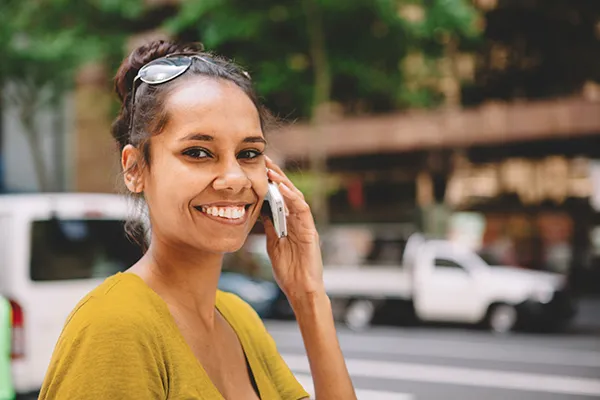
Each person is assigned a Multicultural Support Officer (MSO) who will help them every step of the way, ensuring they receive continuous care and personalised support based on their specific health needs.
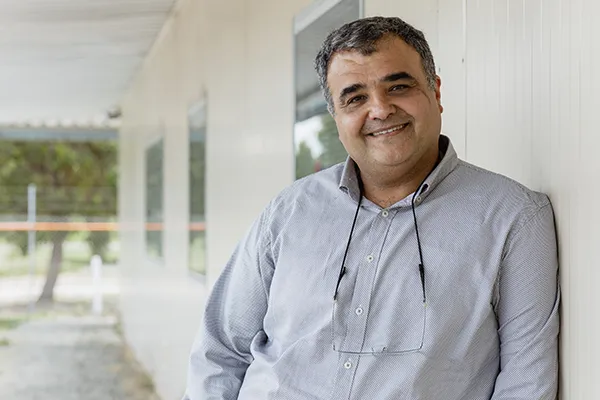
We offer ongoing support and work closely with other service providers, including healthcare and social services to make sure each person gets the complete care they need for their health and well-being.
Partner with us
We’d love to work with your organisation. Partner with us to bring your expertise to those who need it most.
Whether you’re a community health centre, GP clinic experienced with homeless populations, CALD and refugee community organisation, multicultural group, faith leader, or specialist service provider, we invite you to join us on this initiative.
- Co-host information sessions within your community
- Address the multifaceted needs of individuals and families within the target populations by facilitating smooth client transfers and referrals
- Provide your expertise to contribute to a robust referral network to ensure clients can access holistic support – from a range of services, including:
- CALD and refugee organisations
- Refugee and asylum seeker support services
- Homelessness support and services
- Community health providers and GPs
- Community and faith groups
Contact us at clientservices@ssi.org.au for more information.
Where we are
We are open Monday to Friday from 9am to 5pm.
SSI Bankstown
2/462 Chapel Road, Bankstown NSW 2200
To make a referral, please use the form below
The Service Navigation Support Service is supported by funding from the Australian Government through the PHN Program.
| Charlie – Car enthusiast gains employment as a mechanic | Arabic | Simplified Chinese | Vietnamese | |
| Ellen – Pilot program helps Ellen get job-ready | Arabic | Simplified Chinese | Vietnamese | |
| Faith – SSI LAC participant on her way to becoming a chef | Arabic | Simplified Chinese | Vietnamese | |
| Ivan – SSI Local Area Coordinator helps bring stranded NDIS participants in the outback home safely | Arabic | Simplified Chinese | Vietnamese | |
| Peter – Peter’s journey of resilience, empowerment and taking part in the community | Arabic | Simplified Chinese | Vietnamese | |
| Sabrina – Aspiring teach gains independence with SSI’s support | Arabic | Simplified Chinese | Vietnamese | |
| Sonita – SSI NDIS participant reclaims independence | Arabic | Simplified Chinese | Vietnamese | |
| Taylor – Gaze-based communications device proves life-changing for teen SSI NDIS participant | Arabic | Simplified Chinese | Vietnamese | |
| Waseem – Finding a job and a community voice | Arabic | Simplified Chinese | Vietnamese | Urdu |
About traineeships
We’re offering paid traineeships at the Light Horse Logistics Hub in Western Sydney, a major project that provides real hands-on experience.
This is an opportunity to get a paid start in a career in construction, gain local experience, and develop valuable skills.
Who this opportunity is for
- Locals near the Light Horse Logistics Hub in Eastern Creek who can commute on weekdays
- Culturally diverse individuals, Aboriginal or Torres Strait Islander people, women, and those needing job support
- People aged 16+ years and eligible to work in Australia
- Those eager to learn new skills in construction and able to commit to at least six months of ongoing work
Key dates
- Barbeque event for shortlisted candidates will be held at Eastern Creek on 5 December 2024
- Successful candidates will be announced during third week of December 2024
- Training begins in January 2025
- Applications for Eastern Creek are now closed.
In partnership with

Creating a safer world for CALD women and children
We are embarking on a collaborative initiative with culturally and linguistically diverse (CALD) community and faith leaders who hold deep insights into their communities. Addressing Family, Domestic, and Sexual Violence (FDSV) requires mobilising communities together and recognising that this is a universal issue. United, we can build safer, stronger communities free from violence.
CALD community and faith leaders share our vision for communities across Australia: respect, safety, and equality for all individuals.
Fostering a supportive and inclusive environment is crucial—one where victim survivors of FDSV feel empowered to seek help, and individuals who use FDSV are held accountable for their actions.
To raise awareness and prevent family, domestic and sexual violence within CALD communities, faith and community leaders must be empowered with the knowledge, skills and resources to identify, discuss, prevent and respond. By working closely with these leaders, we can better reach and assist CALD women and children impacted by FDSV.
SSI has been awarded the National Family, Domestic and Sexual Violence Training for Culturally and Linguistically Diverse Communities and Faith Leaders Grant to deliver this national project that will raise awareness and prevent family violence within CALD communities. The project will be delivered in partnership with FECCA.
Safer, stronger communities free from violence: our approach
Multicultural community and faith leaders are uniquely positioned to prevent family, domestic and sexual violence (FDSV). As trusted confidants for victim survivors and individuals who use violence, they hold significant influence within their communities. Often, they are the first point of contact for women experiencing violence, providing guidance, mediation, and referrals to support services.
Their deep understanding of community experiences allows them to address issues like language barriers, forced migration displacement, isolation, social barriers, and harmful gender and cultural norms. By working closely with leaders, we can better reach and assist CALD women and children impacted by FDSV.
SSI will leverage its strong relationship with multicultural communities and faith leaders and draw on lived experience expertise to co-design innovative approaches to improve awareness, increase knowledge, drive attitude and behaviour change and contribute to the development of appropriate prevention and intervention responses and strategies to address abuse of CALD women and children.
In collaboration with community leaders, faith leaders and key sector stakeholders, the project will:

Hold consultation workshops across all states and territories with faith and community leaders, victim survivors and sector stakeholders.

Codesign, develop, and deliver an evidence based, culturally appropriate national training package.

Develop vignettes as conversation starters on FDSV within CALD communities.

Develop and disseminate good practice guidance and resources to enable leaders to recognise, better engage with and foster discussions of FDSV or suspected FDSV in their communities.

Facilitate Communities of Practice to expand FDSV knowledge, good practice and opportunity for networking and peer support for CALD leadership and communities.
Together we can:
Project timeline
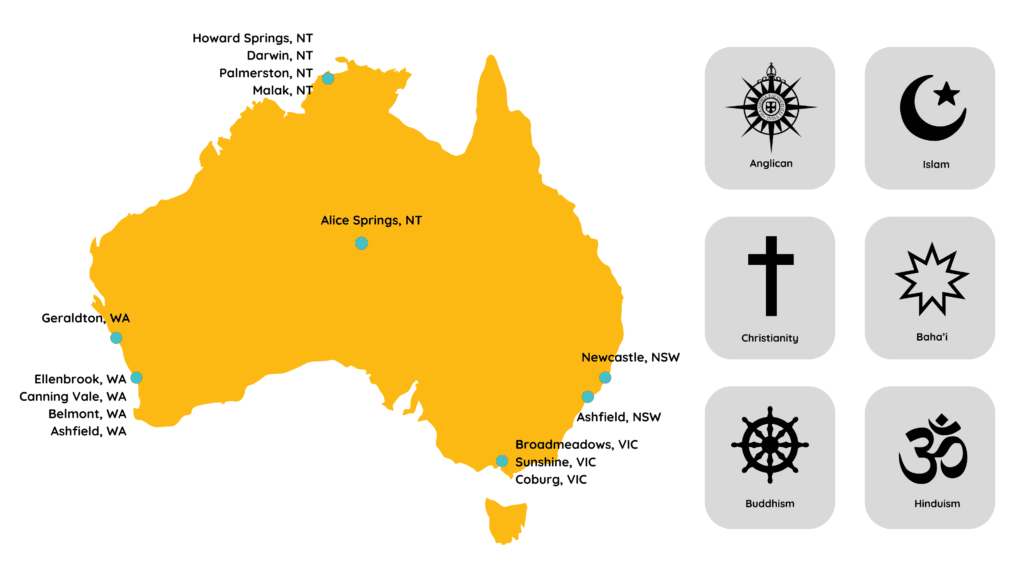
Get in touch
For more information about this project, or to understand if you should get involved, please contact us by email at fdsv.tecs@ssi.org.au or call our Community Engagement Coordinator on 0466 217 497.
FDSV: Train, Engage, Connect and Support (TECS) Project is funded by the Australian Government Department of Social Services and is a partnership initiative with the Federation of Ethnic Communities’ Council of Australia (FECCA). This project is part of the Australian Government’s National Plan to End Violence Against Women and Children 2022-2032.
Useful resources
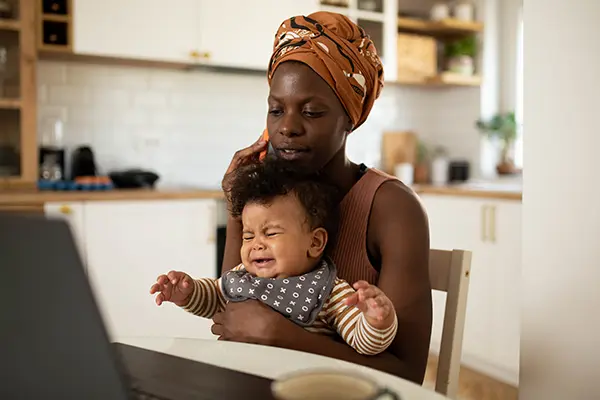
1800RESPECT – 1800 737 732
This is a 24-hour national sexual assault, family and domestic violence counselling line for any Australian who has experienced or is at risk of, family and domestic violence and/or sexual assault.
Individuals can also access local support services and search the internet using Daisy, a free app developed by 1800RESPECT that protects user privacy.
If you need translation or interpreting services call:
Translating and Interpreting Service National on 13 14 50 and ask them to contact 1800 RESPECT for you.
For callers who are deaf or have a hearing or speech impairment call National Relay Service and ask them to contact 1800RESPECT
- TTY/Voice Calls – phone 133 677
- Speak and Listen – phone 1300 555 727
- Internet relay users – visit the National Relay Service website
MensLine Australia – 1300 789 978
Supports men and boys who are dealing with family and relationship difficulties. 24/7 telephone and online support an information service for Australian men.
Men’s Referral Service – 1300 766 491
This service from No to Violence offers assistance, information and counselling to help men who use family violence.
Kids Help Line – 1800 55 1800
Australia-wide free 24/7, confidential and private counselling service specifically for children and young people aged five to 25 years.
Elder Abuse Help Line – 1300 651 192
Free information and support services for people who experience or witness the abuse of an older person. Operating hours vary.
Financial Counselling Australia – 1800 007 007
Access free resources and advice from a private financial counsellor. Call 1800 007 007 to speak to someone in your state.
13YARN – 13 92 76
The first national crisis support line for mob who are feeling overwhelmed or having difficulty coping.
They offer a confidential one-on-one yarning opportunity with a Lifeline-trained Aboriginal & Torres Strait Islander Crisis Supporter.
FAQs about the project
What will the project achieve?
The measures of success for this project will focus on assessing the impact of the project on CALD community and faith leaders in relation to knowledge of FDSV, and confidence to support community engagement/discussion on FDSV and facilitate access to FDSV supports, namely:
- Increased understanding of domestic and sexual violence and its impacts.
- Increased awareness of the indicators of FDSV for CALD women and children.
- Increased understanding of support strategies for supporting women and children experiencing FDSV.
- Increased knowledge of the role of specialist FDSV services.
- Increased confidence to identify and respond to the needs of people experiencing FDSV.
- Increased confidence to support CALD community engagement about FDSV.
- Increased CALD community engagement on FDSV.
What organisations are involved in this project?
SSI is partnering with FECCA to deliver this significant project nationally. A membership base of 23 state/regional peak organisations and a reach of over 1,500 ethnic and faith-based community organisations and their leaders provide a strong foundation to listen, collaborate and co-design resources with CALD communities that meet their needs. Based on long-term, deep, and trusted connections with these member organisations, community and faith leaders, FECCA and SSI will effectively engage and mobilise leaders to action prevention of FDSV and supporting CALD women and children within their communities.
The TECS project will complement other local and national campaigns, awareness raising and educational activities and collaborate closely with community organisations, FDSV service providers and peaks, health and legal providers and government to deliver the project’s training goals.
What governance structure is in place?
The project has a robust governance structure that includes establishment of a Reference Advisory Group (RAG) to ensure that there is a mechanism to obtain advice, input from a diverse range of stakeholders, including CALD and faith leaders, community organisations, health & legal services and FDSV service providers across all states and territories to identify the key challenges, issues, and barriers specific to the cultural, language and faith communities across urban and regional locations.
The RAG will provide diverse perspectives, expertise, and guidance throughout the development and delivery process to ensure that the training package captures current knowledge, lived experience voice, critical thinking and analysis so that it is nationally consistent and meets the needs of CALD communities.
When will the resources be available?
The resources will be available from July 2025.
About SafePath
Victims of sexual violence from culturally and linguistically diverse (CALD) communities face unique challenges in reporting and reaching out for assistance when there is a lack of culturally responsive and trauma-informed services. Often, sexual violence services are not equipped with culturally and linguistically informed information, further enhancing barriers that victims may experience.
SafePath is a two-year project funded until June 2025 by the Department of Communities & Justice. The project aims to further equip frontline practitioners in identifying and responding to CALD victim survivors of sexual violence perpetration.
How we help
SafePath will develop culturally and linguistically informed resources to support victim-survivors, practitioners, and wider communities about sexual violence.
We invite you to share and use the resources when they are available. Some resources will be available in-language.
Getting help
If you or someone is in immediate danger, please call Triple Zero (000) for emergency services.
If you are subjected to or impacted by sexual violence, know someone who is, or are triggered by this content and would like to access support, please contact:
- Full Stop Domestic Violence helpline on 1800 385 578 or Full Stop NSW Sexual Violence Helpline on 1800 424 017
- Lifeline on 13 11 14
Get in touch
Should you have any comments, feedback, or questions, please contact us.
E: info@ssi.org.au
P: 02 8799 6700
About the program
Modern slavery can take many forms and affect more Australians and communities than we realise. Women, children, refugees, people seeking asylum, and recent migrants including international students are most at risk.
Our SToP program works with multicultural communities to increase knowledge and understanding about modern slavery with a focus on forced labour, domestic servitude, and forced marriage. We offer in-language community education to help migrant communities recognise the signs of these issues and empower them to take positive action.
SToP is funded by the Attorney-General’s Department under the National Action Plan modern slavery grants program.
How we help



Who this program is for
- Multicultural communities residing in NSW, Queensland and Victoria, including community and faith leaders.
- We welcome everyone interested in learning more about ending modern slavery, including schools, settlement and migrant agencies, and any other groups.
Understanding modern slavery
Modern slavery refers to situations of exploitation where an individual is unable to refuse or leave due to threats, deception, and coercion. It is an abuse of power where the basic human right of freedom is denied.
Get in touch
For more information about the project or to run a free face-to-face community session around forced labour, forced marriage and domestic servitude, please contact our team. We’re here to help.
E: stop@ssi.org.au
P: 0403 224 019
About Care Finder
Our free service helps older Australians from diverse backgrounds connect to aged care services and supports. If you don’t have a carer or support person, we are here for you. We create a plan based on your needs and meet you where it suits you best – at home, in our office, or in the community.
SSI Care Finder Program is supported by funding from the Australian government through the PHN program (Primary Health Network).
How we help



Who we help
- Australians aged 65 or older from diverse backgrounds, including Aboriginal or Torres Strait Islander people aged 50 or older
- People experiencing homelessness or at risk of homelessness
- Live in Logan region in Queensland
- Require support to navigate the My Aged Care System and other relevant community services
- Eligible for government funded aged care support
Get in touch
To learn more about SSI’s Care Finder program, please contact our team in Logan.
91 Wembley Road Logan Central, QLD
Monday to Friday from 8.30 am to 4.30 pm
P: 0403 710 245
E: seniorconnect@ssi.org.au
Program Update
The Home Care Workforce Support Program (HCWSP) ended on June 30, 2024.
The program was part of the Federal government’s overall aim to grow, upskill and support Australia’s home care workers to ensure senior Australians can access the care they need to remain independent at home.
SSI is proud of what the program achieved across New South Wales and the ACT. To learn more about the program please download our Program Summary and Learnings document below.
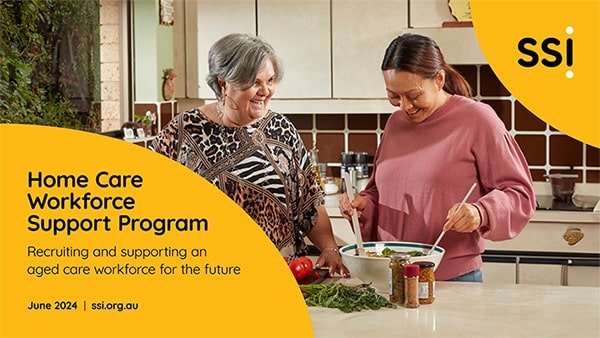
About Championing Action for Tech Safety (CATS)
Preventing Tech-based Abuse of Women
SSI has successfully tendered for funding through the Preventing Tech-based Abuse of Women Grants Program (funded by the eSafety Commissioner). This program contributes to the Federal Government’s National Plan to End Violence Against Women and Children 2022-32 (the National Plan).
SSI will work to address tech-safety and tech-based abuse in the context of Domestic and Family Violence (DFV) by increasing the understanding and knowledge of women from culturally and linguistically diverse (CALD) backgrounds on tech-based safety and abuse. SSI will also focus efforts on newer arrivals, and those who have arrived as refugees.
How this works
The project will work to:
- increase the understanding of tech-based abuse and tech safety among migrant and refugee women and their children who may also be a target for tech-based abuse in the context of DFV,
- Increase conversations among migrant and refugee women on tech-based abuse and tech safety,
- Increase practical knowledge on how to identify spyware, tracking apps and clearing cache information, and
- Increasing the digital literacy of women participating in co-design and community education workshops.
Get in touch
For more information about the project or to become involved, please contact us.
P: 0401 750 745
E: mandersson@ssi.org.au
Monday to Thursday 8.00 am – 4.30 pm

